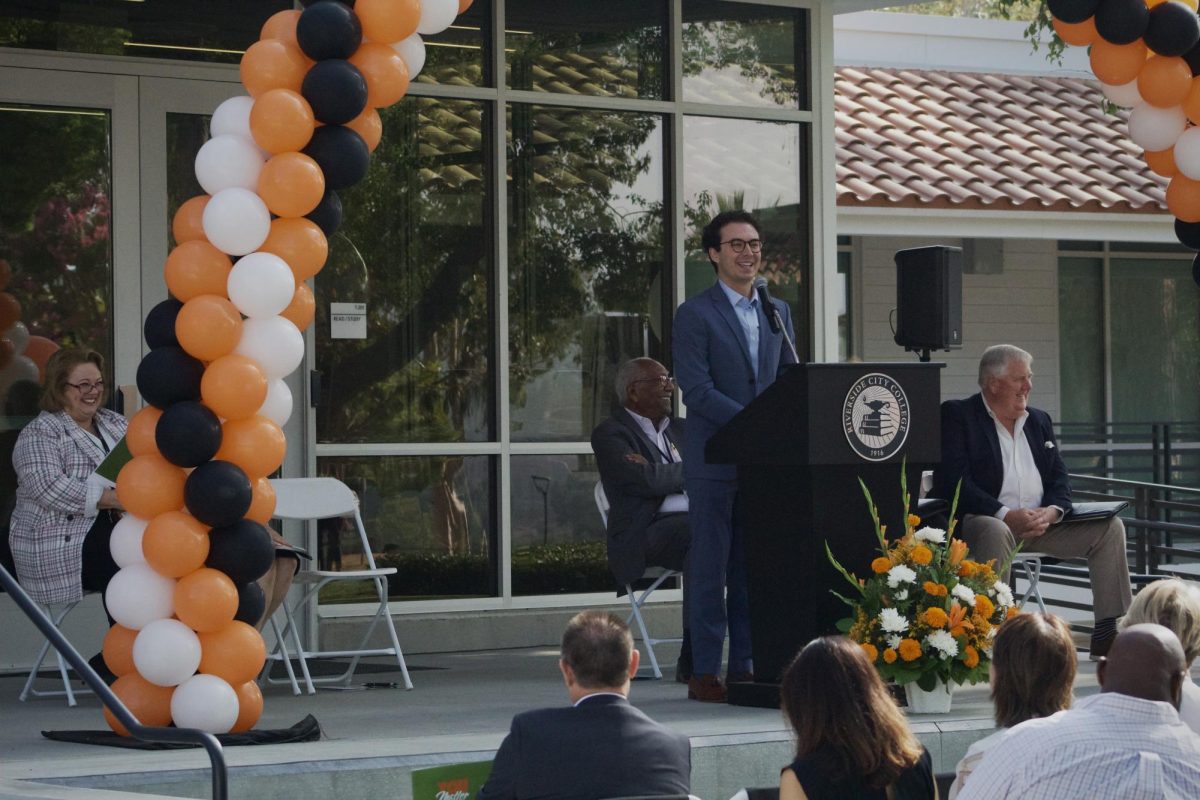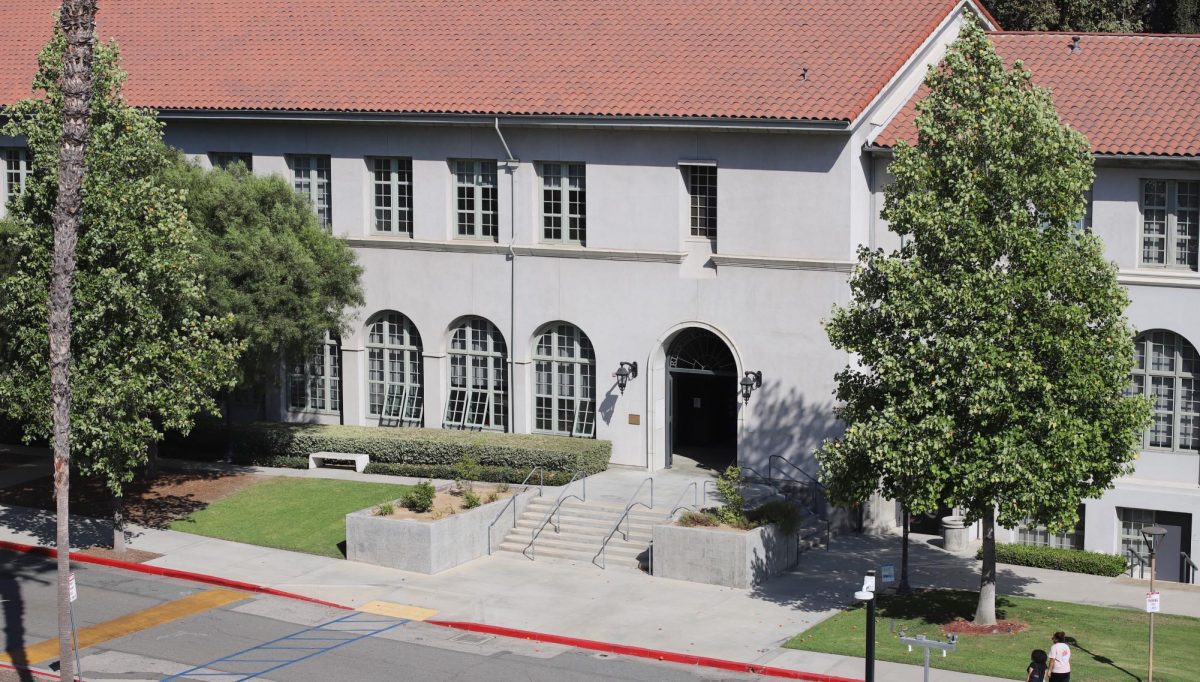By Erik Galicia
The United States’ recent deployment of additional military resources to the Middle East has many people worried about the possibility of a new war.
“I pay a lot of taxes,” said Dariush Haghighat, a political science professor at Riverside City College. “I want my taxes to go to the community, not to bombs.”
Haghighat, who has family living in Iran, recalls the stress he went through when Iran was at war with Iraq during the 1980s.
“I was terrified,” Haghighat said. “I couldn’t communicate with my parents.”
According to Haghighat, relations between Iran and the United States have been on “a rollercoaster since the end of World War II.” The two nations were able to reach an agreement that included several European powers in 2015. Known to Americans as The Iran Nuclear Deal, the agreement substantially reduced Iran’s nuclear program and lifted economic sanctions the country had been subjected to.
“Until (President Donald) Trump arrives and criticizes the agreement without offering any concrete examples of why this is bad,” Haghighat said. “The problem in the nuclear agreement is that it had to be renewed every six months by the U.S. president. Trump was able to use this provision to end the agreement.”
The New York Times recently reported that Trump’s top national security aides have presented a new military plan that includes sending 120,000 troops to the Middle East if Iran attacks American forces. American intelligence has reportedly accused Iran of encouraging its proxies in the region to “sabotage” Saudi oil tankers near the Strait of Hormuz. The details leading up to those accusations have not been declassified and Iran denies any involvement in the recent attack on those oil tankers.
In the last few weeks, Trump has told reporters that he “doesn’t want war with Iran,” but has also tweeted “If Iran wants to fight, that will be the official end of Iran.”
There is worry that these types of decisions are actually in the hands of advisors like John Bolton, who is accused of having had great influence in pushing the United States into war with Iraq in 2003.
“John Bolton has a long history of advocating for war with Iran,” Haghighat said. “But Iran is not Iraq. Iran has deep roots throughout the region and loyal dedicated allies.”
Himadri Ratnayake, a team officer for RCC’s Model United Nations, feels a new war would further increase the number of Middle Eastern refugees seeking asylum. Yet, such a war could also cause a further increase in hate crimes and discrimination toward Americans of Middle Eastern descent.
“Members of the international community would most likely have to incorporate these refugees into their country,” Ratnayake said. “Do they really want to leave their beloved homes? Probably not. But they are forced to because of the circumstances they are surrounded by. There is already a lot of discrimination and hate crimes targeting Middle Easterners. Especially throughout Europe, the U.K. and the South in the U.S. It would most likely increase even further due to political and religious beliefs.”
According to Haghighat, Iranian currency has “taken a nosedive” in the year since Trump withdrew from the Iran deal.
“The economic sanctions have gotten to the point where the Iranian economy is paralyzed,” Haghighat said. “It’s absolutely unbearable for the Iranian people. The cost of living is destroying the economy and poverty is rising.”
Haghighat argues that American intervention in the Middle East has resulted in a “complete mess.”
“After years of being in Iraq, we still don’t have an exit strategy,” Haghighat said. “In the end, the country of Iraq is destroyed. It’s been chaos after chaos. It’s the same in Afghanistan. And look at what’s happening in Syria. The region is on fire.”
The professor also expresses concern for the local problems a new war could bring.
“In Iraq, we spent so much that we didn’t have money for education and healthcare,” Haghighat said. “I was president of the faculty union during the Iraq War. The government just slashed $18 million from our funding. We were always thinking of how many classes would be cancelled. How many teachers would be laid off.”
Haghighat also urges the need to examine the toll that war takes on soldiers and to look at the “very real” physical and psychological problems these soldiers suffer from.
“I have attended funerals of several former students who, instead of pursuing their education, went to war,” Haghighat said. “Look at the rate of suicide among returning vets … Do we really want to do that again based on rhetoric? Based on Bolton?”
There are different opinions on the gravity of the situation among RCC students though. While some are skeptical of the news they are fed on a daily basis, others share the worry that the United States will continue making imperialist decisions.
RCC journalism student Fatima Almanza believes there are “zero” possibilities that the United States will actually end up going to war with Iran.
“We’ve been holding back a lot,” Almanza said. “I think the possibility of war is slim. Ultimately, the president doesn’t want war. He can tell that war is not going to be good for the economy.”
Although Almanza considers herself a conservative and a supporter of Trump, she accepts the possibility that a new war in the Middle East could worsen discrimination towards Middle Easterners in America.
“I do understand why they want to come,” Almanza said. “But a lot of people are going to be hostile toward that type of immigration. A lot of conservatives don’t understand the difference between jihadists and muslims.”
Almanza attributes the feeling that tensions are rising to corporate and political theatrics.
“It’s a lot of propaganda,” Almanza said. “A lot of politicians are all theatrics. People need to inform themselves on all sides to distinguish between propaganda and truth.”
Caleb Karman, a studio arts major at RCC, feels that war with Iran is possible, but advises students to be cautious of what they hear from biased corporate media.
“Think with your head,” Karman said. “Think for yourself and look at things objectively.”
On the other hand, Ratnayake points out America’s history of interventionism.
“Unfortunately, it seems like there is a strong possibility for a war to occur between the U.S. and Iran,” Ratnayake said. “The U.S. has been known to interfere in other nations’ political institutions and activities, and it appears they will do the same this time around.”
Ratnayake also argues that a new conflict would put stress on Iranian-Americans.
“In terms of Iranians, many civilians, including men, women and children … would be killed,” Ratnayake said. “The war would affect many Iranian-Americans who have family in Iran. It is incredibly challenging to pick a side of your identity.”
RCC communication studies major Janet Palacio feels that the threat of war is “pretty real.”
“The fact that the U.S. asked some members of the embassy to leave gives me the idea that something is about to go down,” Palacio said.
According to a 2018 HuffPost poll, 53% of Americans oppose going to war with Iran. In order to influence the uncertain political climate of the times, Haghighat encourages students to be proactive, organize and get involved in community organizations.
“I’m a strong believer in organization and involvement in the political process,” Haghighat said. “The problem is that young people run wild with idealist notions but don’t get organized and don’t walk the walk. It’s time for young people to get involved … and claim ownership of the political process.”







